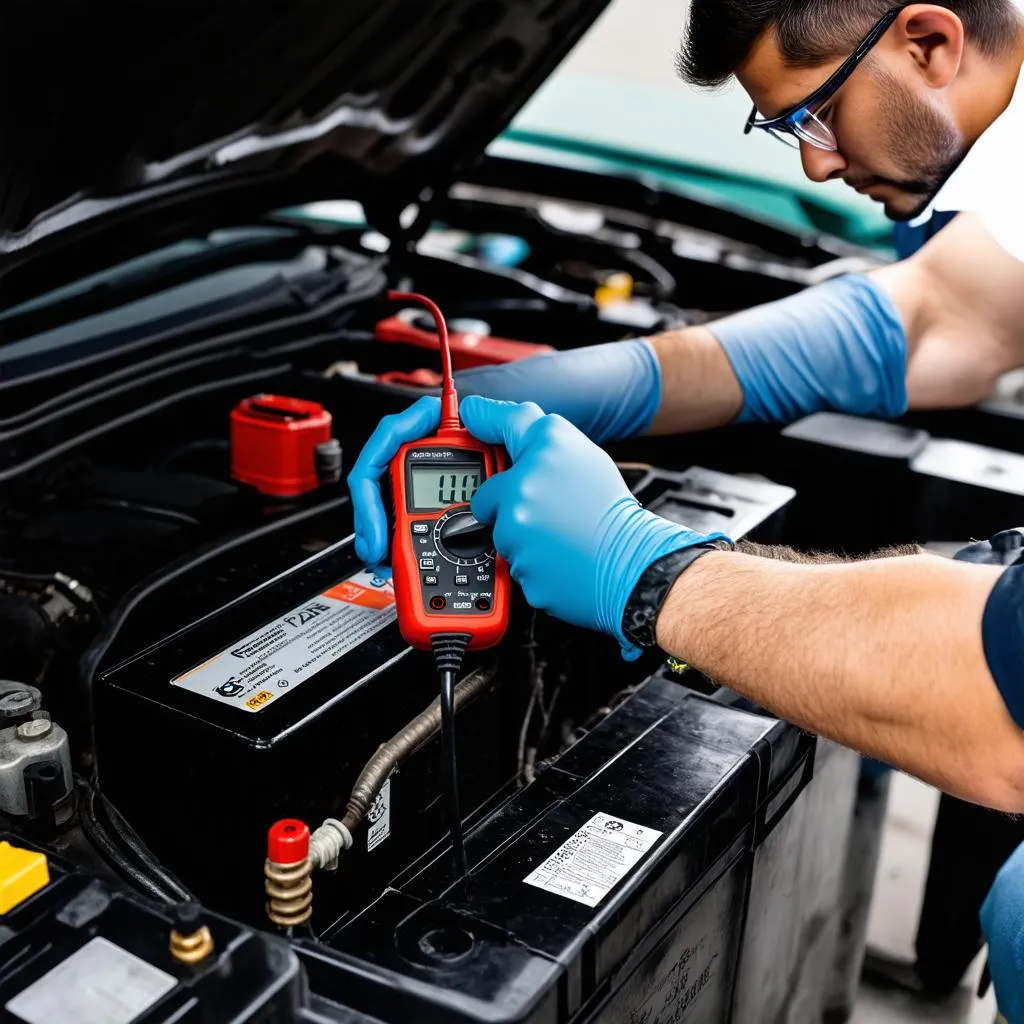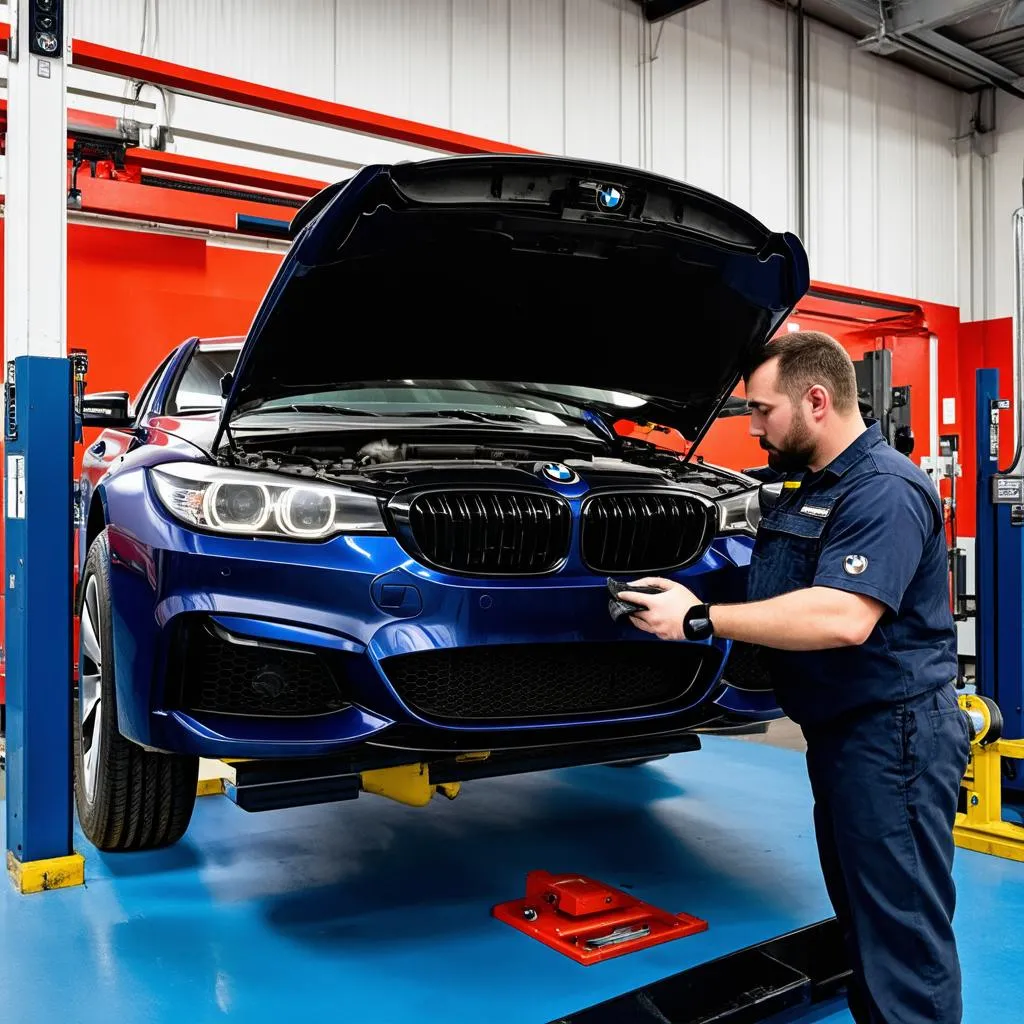BMW Increased Battery Discharge: Causes, Symptoms, and Solutions
“A car is like a human being – it needs care and attention.” – Unknown
Have you ever experienced the frustration of getting into your BMW only to find that the battery is dead? You turn the key, the lights dim, and the engine refuses to start. It’s a common problem that can be caused by a number of factors, including increased battery discharge. In this article, we’ll dive deep into the world of BMW battery discharge, uncovering the root causes, recognizing the telltale signs, and exploring the solutions to get your beloved car back on the road.
Understanding BMW Increased Battery Discharge
Increased battery discharge in your BMW can be a perplexing issue. It’s like a mysterious force draining the life out of your car’s power source, leaving you stranded. Let’s break down the meaning of this problem from various perspectives.
From a Technical Perspective
From a technical standpoint, increased battery discharge means your battery is losing power faster than it should. This can be attributed to various factors:
- Parasitic Draw: Imagine your car as a house with many lights and appliances constantly drawing power even when you’re not using them. Similarly, your BMW has systems that continue consuming power even when it’s turned off, known as parasitic draw. If this draw is excessive, it can deplete your battery over time.
- Faulty Battery: Like any electrical appliance, a car battery has a limited lifespan. If it’s aging or damaged, it might not hold a charge properly, leading to frequent discharges.
- Faulty Alternator: Your car’s alternator acts as the battery’s power source when the engine is running. If the alternator isn’t charging the battery adequately, you’ll experience a gradual decline in battery power.
- Short Circuit: A short circuit can occur anywhere in the electrical system, creating a pathway for electricity to flow abnormally. This can cause a significant discharge of the battery.
From a Driver’s Perspective
As a BMW owner, experiencing increased battery discharge can be stressful. You might face situations like:
- Difficulty Starting: The engine might crank slowly or refuse to start altogether due to the depleted battery.
- Dim Lights: The headlights, dashboard lights, and other electrical components might seem dimmer than usual.
- Frequent Battery Replacements: You might find yourself replacing the battery more often than expected.
- Battery Warning Lights: The dashboard might display a battery warning light, indicating a problem with the charging system.
From a Financial Perspective
Dealing with increased battery discharge can be costly. Replacing a battery, repairing the alternator, or troubleshooting electrical issues can drain your wallet.
Diagnosing the Cause
Pinpointing the exact cause of increased battery discharge in your BMW requires a systematic approach.
Step 1: Start with a visual inspection. Check the battery terminals for corrosion or looseness. Look for any signs of damage or leaks on the battery itself.
Step 2: Use a multimeter to measure the battery voltage. A fully charged battery should have a voltage of 12.6 volts or higher. If the voltage is significantly lower, it indicates a weak battery.
Step 3: Measure the voltage at the battery terminals while the engine is running. The voltage should be around 14.4 volts. If the voltage is lower, it indicates a problem with the alternator.
Step 4: Check for parasitic draw. This can be done using a multimeter and disconnecting the battery negative terminal. If there’s a significant current draw even with the battery disconnected, it indicates a problem with a parasitic drain.
Solutions and Recommendations
Once you’ve identified the cause of the increased battery discharge, you can address the issue with the following solutions:
- Replace the Battery: If the battery is old or damaged, replacing it with a new one is the best solution.
- Repair or Replace the Alternator: If the alternator is faulty, it needs to be repaired or replaced.
- Fix the Short Circuit: A short circuit needs to be located and repaired by a qualified mechanic.
- Address Parasitic Draw: If a component is causing a parasitic draw, it needs to be identified and repaired.
- Use a Battery Charger: Regularly charging your battery can help prevent discharge.
- Consider a Battery Management System: Some newer BMW models are equipped with battery management systems that help optimize battery performance and extend its lifespan.
Frequently Asked Questions
How do I prevent increased battery discharge?
- Avoid leaving lights, radio, or other electrical components on when the car is not running.
- Regularly check the battery terminals for corrosion and clean them if necessary.
- Have the battery checked by a mechanic or use a battery tester to assess its condition.
What is the average lifespan of a BMW battery?
The average lifespan of a BMW battery is 3-5 years, but it can vary depending on factors such as driving habits, climate, and battery maintenance.
How can I tell if my battery is bad?
- The battery might be swollen or leaking.
- The battery might not hold a charge properly.
- The battery might make clicking or grinding noises when trying to start the car.
Can I jump-start my BMW if the battery is dead?
Yes, you can jump-start your BMW if the battery is dead. However, make sure you follow the correct procedures to avoid damaging the electrical system.
What should I do if my battery warning light is on?
If your battery warning light is on, it’s important to take your BMW to a mechanic for diagnosis and repair.
Boosting Your Battery’s Karma
Some believe that taking care of your car can positively impact its performance. Here are some tips to enhance the “karma” of your BMW battery:
- Keep it clean: Ensure the battery terminals are free of corrosion.
- Use a high-quality battery: Invest in a top-notch battery to ensure optimal performance and longevity.
- Regular maintenance: Like a good spiritual practice, regular checks and maintenance will help your battery stay healthy.
Where to Go For Help
If you’re experiencing increased battery discharge in your BMW and you need professional assistance, reach out to our team at CarDiagXpert. We specialize in European car diagnostics and repairs.
 bmw-battery-discharge-diagnosis
bmw-battery-discharge-diagnosis
We offer a wide range of services, including:
- Battery Testing and Replacement
- Alternator Testing and Repair
- Electrical System Diagnosis and Repair
We use advanced diagnostic tools and have a team of experienced technicians who can diagnose and repair any issue you may be experiencing.
Contact us at Whatsapp: +84767531508 for immediate support and expert advice.
Further Reading
For more in-depth information on related topics, check out these other helpful resources on our website:
- Increased Battery Discharge in BMW X3: https://cardiagxpert.com/increased-battery-discharge-bmw-x3/
- BMW Battery Reprogramming: https://cardiagxpert.com/bmw-battery-reprogram/
- BMW Battery Dead: https://cardiagxpert.com/bmw-battery-dead/
Conclusion
Increased battery discharge in your BMW can be a frustrating problem, but with the right understanding and knowledge, you can tackle it head-on. Remember, regular maintenance, careful observation, and timely intervention are crucial to ensuring the longevity and smooth operation of your beloved car.
Don’t hesitate to reach out to our team at CarDiagXpert if you need any assistance. We’re here to help you keep your BMW running smoothly and efficiently.
 bmw-service-center
bmw-service-center
Share this article with your fellow BMW owners and let’s keep our cars running strong!
